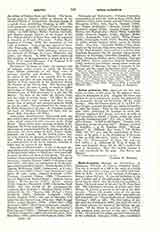

Servos servorum Del. (SERVANT OF THE SERVANTS OF GOD), a title given by the popes to themselves in documents of note. Gregory the Great was the first to use it extensively, and he was imitated by his successors, though not invariably till the ninth century. John the Deacon states (P.L., LXXV, 87) that Gregory assumed this title as a lesson in humility to John the Faster. Prior to the controversy with John (595), addressing St. Leander in April, 591, Gregory employed this phrase, and even as early as 587, according to Ewald (“Neues Archiv fur altere deutsche Geschichtskunde”, III, 545, a. 1878), while still a deacon. A Bull of 570 begins: “Joannes (III) Episcopus, servus servorum Dei”. Bishops actuated by humility, e.g. St. Boniface [Jaffe, “Monum. Mogun.” in “Biblioth. Rer. Germ.” III (Berlin, 1866), 157, 177 etc.], and the archbishops of Benevento; or by pride, e.g. the archbishops of Ravenna as late as 1122 [Muratori, “Antiq. Ital.”, V (Milan 1741), 177; “Dissertazioni”, II, disser. 36]; and even civil rulers, e.g. Alphonsus II, King of Spain (b. 830), and Emperor Henry III (b. 1017), applied the term to themselves. Since the twelfth century it is used exclusively by the pope. (See Bulls and Briefs.)
ANDREW B. MEEHAN

